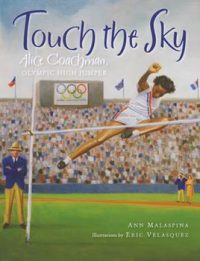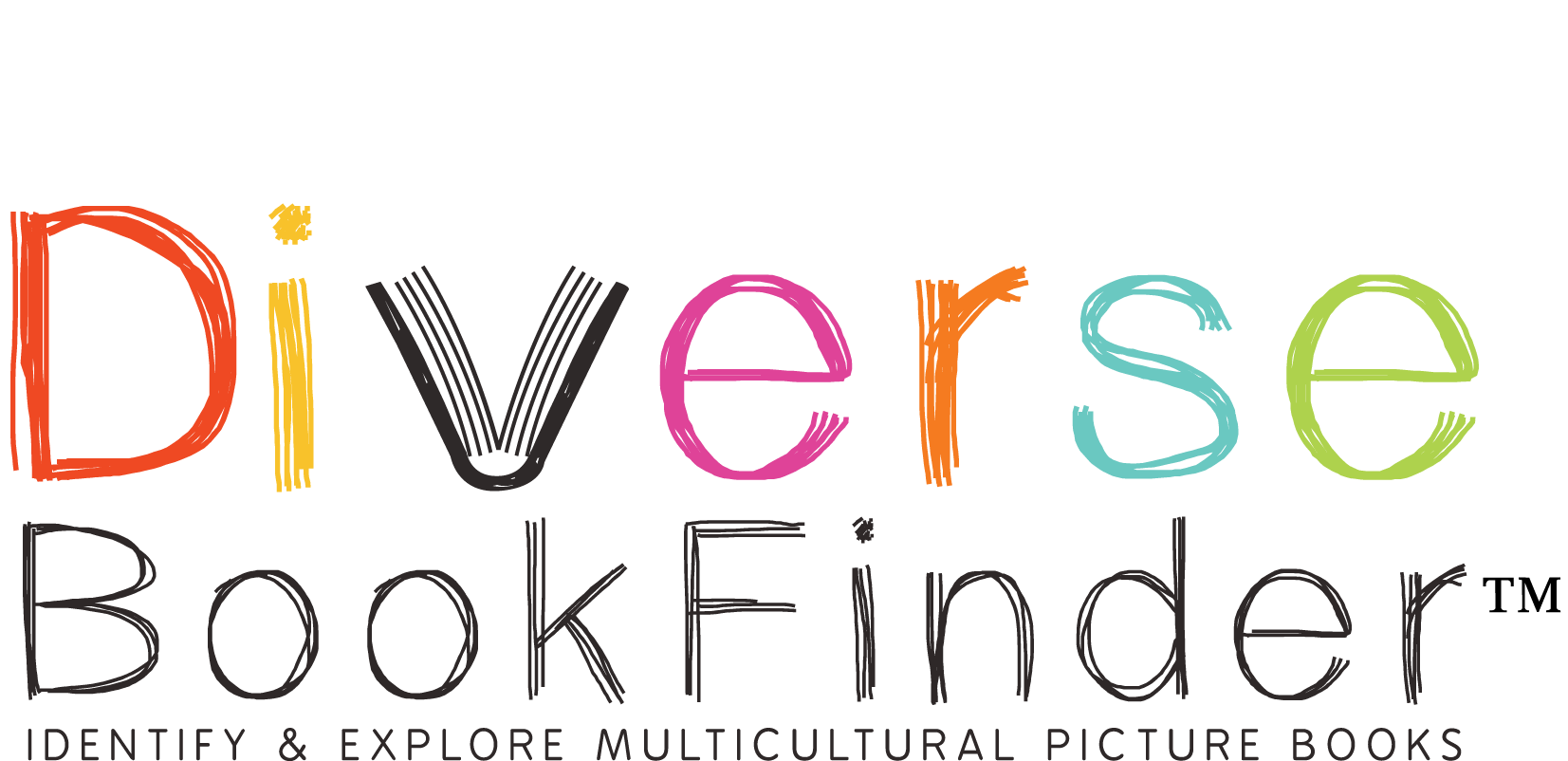
Our collection of picture books featuring Black and Indigenous people and People of Color (BIPOC) is available to the public. *Inclusion of a title in the collection DOES NOT EQUAL a recommendation.* Click here for more on book evaluation.
Find titles using a keyword search below (e.g. adoption, birthday, holidays, etc.), or by selecting one or a combination of filters on the lefthand sidebar below.
First time here? Start here!
337 matching books
Show FiltersFilter Results
-
Biography 186
-
Cross Group 89
-
Folklore 3
-
Afghan 7
-
British 1
-
Canadian 6
-
Chinese 9
-
Cuban 1
-
Dutch 1
-
Egyptian 1
-
Eritrean 1
-
French 1
-
German 2
-
Haitian 6
-
Hmong 1
-
Indian 4
-
Iranian 1
-
Iraqi 1
-
Irish 1
-
Israeli 1
-
Italian 1
-
Jamaican 2
-
Japanese 6
-
Kenyan 3
-
Korean 1
-
Kurdish 1
-
Latvian 1
-
Lebanese 1
-
Malawian 1
-
Mexican 15
-
Nigerian 1
-
Peruvian 1
-
Polish 1
-
Russian 4
-
South Asian 14
-
Spanish 3
-
Sudanese 1
-
Syrian 4
-
Unspecified 234
-
Xhosa 2
-
Africa 15
-
Alabama 37
-
Alaska 1
-
Arctic 1
-
Arizona 6
-
Arkansas 6
-
Asia 34
-
Brazil 2
-
California 32
-
Cambodia 2
-
Canada 22
-
China 6
-
Eastern Asia 10
-
Ecuador 1
-
Egypt 1
-
England 3
-
Eritrea 1
-
Ethiopia 3
-
Europe 20
-
Florida 4
-
France 10
-
Georgia 20
-
Germany 5
-
Ghana 2
-
Greece 1
-
Haiti 5
-
Hawaii 1
-
Honduras 1
-
Illinois 11
-
India 4
-
Indiana 2
-
Iran 1
-
Iraq 1
-
Israel 2
-
Italy 2
-
Jamaica 1
-
Japan 2
-
Kansas 3
-
Kentucky 6
-
Kenya 2
-
Laos 1
-
Lebanon 1
-
Libya 1
-
Malawi 1
-
Maryland 12
-
Mexico 6
-
Michigan 4
-
Mississippi 13
-
Missouri 9
-
Montana 2
-
Nebraska 1
-
New York 47
-
Nigeria 1
-
Northern America 247
-
Norway 1
-
Oceania 3
-
Ohio 6
-
Oklahoma 5
-
Oregon 1
-
Pakistan 4
-
Pennsylvania 14
-
Peru 1
-
Portugal 1
-
Russia 1
-
Spain 2
-
Syria 4
-
Taiwan 1
-
Tennessee 17
-
Texas 10
-
Thailand 2
-
Unspecified 19
-
Utah 1
-
Vietnam 1
-
Virginia 16
-
Western Asia 13
-
Zimbabwe 1
-
Activism 156
-
Adoption 1
-
Disability 19
-
STEM 21
-
Fiction 135
-
Non-Fiction 201
-
Boy/Man 248
-
Girl/Woman 337
-
Intersex 1
-
Background 38
-
Dominant Main 270
-
Joint Main 58
-
Secondary 263

Equality’s Call
"Learn all about the history of voting rights in the United States—from our nation’s founding to the present day—in this powerful picture book from the New York Times bestselling author of The Pout-Pout Fish. A right isn’t right till it’s granted to all… The founders of the United States declared that consent of the governed was a key part of their plan for the new nation. But for many years, only white men of means were allowed to vote. This unflinching and inspiring history of voting rights looks back at the activists who answered equality’s call, working tirelessly to secure the right for all to vote, and it also looks forward to the future and the work that still needs to be done." -- publisher

Song in a Rainstorm: The Story of Musical Prodigy Thomas “Blind Tom” Wiggins
Born blind into a life of slavery in Georgia, Thomas Wiggins was dismissed as a "useless burden." But through the loving protection of his family, he went on to become one of the greatest musicians of his time --

Touch the Sky: Alice Coachman, Olympic high jumper
A biography of the first black woman to win an Olympic gold medal, from her childhood in segregated Albany, Georgia, in the 1930s, through her recognition at the 1996 Olympics as one of the hundred best athletes in Olympic history. Includes bibliographical references

Walking for Water: How One Boy Stood Up for Gender Equality
"Victor is a pretty typical eight-year-old: he races to get his chores done, finds math challenging and likes to play with his friends. One day, the new school teacher introduces Vic and the other students to the idea of equality between boys and girls. Vic has never really thought about it before, but he soon begins to notice the disparities around him. Like all the older girls and women in their Malawi village, his twin sister, Linesi, now walks the long walk to the river to collect water for the family. Now she can't go to school anymore. It's just the way things have always been. But does it have to be? And is there a way for Vic to change it? When Vic has an idea about how to help, he discovers that even small changes can have an impact"--

Freedom soup
"Join the celebration in the kitchen as a family makes their traditional New Year’s soup — and shares the story of how Haitian independence came to be." -- publisher

Flying Free
"Before Bessie Coleman blazed a high trail with her plane . . . Before she performed in death-defying flying shows that would earn her fame as "Queen Bess" . . . Before she traveled the country speaking out against discrimination, Bessie was a little girl with a big imagination that took her to the sky, through the clouds, and past the birds." -- publisher

What the Kite Saw
"In this memorable story, a young boy finds solace flying his kite from the rooftop after soldiers take his father and brother away. Without his father and brother, the young boy's life is turned upside down. He and his family have to stay inside, along with everyone else in town. At suppertime, he can't stop looking at the two empty places at the table and his sister can't stop crying. The boy looks out the window and is chilled to see a tank's spotlight searching the park where he plays with his friends. He hears shouts and gunshots and catches sight of someone running in the street -- if only they could fly away, he thinks. Each day the curfew is lifted briefly, and the boy goes to the park to see his friends. One day, inspired by the wind in the trees, he has an idea. Back at home he makes a kite, and that night he flies it from his rooftop, imagining what it can see."--

William Still and his freedom stories
"William Still’s parents escaped slavery but had to leave two of their children behind, a tragedy that haunted the family. As a young man, William went to work for the Pennsylvania Anti-Slavery Society, where he raised money, planned rescues, and helped freedom seekers who had traveled north. One day, a strangely familiar man came into William’s office, searching for information about his long-lost family. Could it be? Motivated by his own family’s experience, William Still began collecting the stories of thousands of other freedom seekers. As a result, he was able to reunite other families and build a remarkable source of information, including encounters with Harriet Tubman, Henry “Box” Brown, and William and Ellen Craft." -- publisher

I lost my talk
"One of Rita Joe's most influential poems, "I Lost My Talk" tells the revered Mi'kmaw Elder's childhood story of losing her language while a resident of the residential school in Shubenacadie, Nova Scotia. An often quoted piece in this era of truth and reconciliation, Joe's powerful words explore and celebrate the survival of Mi'kmaw culture and language despite its attempted eradication. A companion book to the simultaneously published I'm Finding My Talk by Rebecca Thomas, I Lost My Talk is a necessary reminder of a dark chapter in Canada's history, a powerful reading experience, and an effective teaching tool for young readers of all cultures and backgrounds. Includes a biography of Rita Joe and striking colour illustrations by Mi'kmaw artist Pauline Young. Rita Joe's essential poetry is presented anew in this children's picture book with illustrations from Pauline Young. Joe, known as the Poet Laureate of the Mi'kmaw, tells her childhood story of losing her language at Shubenacadie's residential school. Mi'kmaw culture and language are celebrated in this collection, which joins current conversations about Canada's shameful history, truth and reconciliation." -- publisher

I’m Finding My Talk
"A response to Rita Joe's iconic poem "I Lost My Talk," and published simultaneously with the new children's book edition illustrated by Pauline Young, comes a companion picture book by award-winning spoken-word artist and Mi'kmaw activist Rebecca Thomas. A second-generation residential school survivor, Thomas writes this response poem openly and honestly, reflecting on the process of working through the destructive effects of colonialism. From sewing regalia to dancing at powow to learning traditional language, I'm Finding My Talk is about rediscovering her community, and finding culture. Features stunning, vibrant illustrations by Mi'kmaw artist Pauline Young." -- publisher
